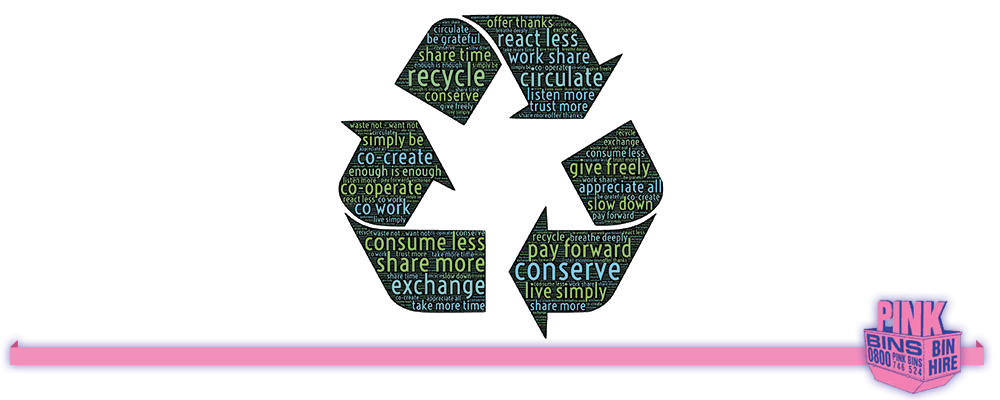Why you should ‘dare’ to recycle
“How dare you,” scolded teen climate activist Greta Thunberg at a recent United Nations Climate Summit. Well, regardless of which side of the climate-change debate you stand, we’re sure you will agree that it is important to care for the environment. And, one way that we ‘grown-ups’ can do this, is by daring to recycle.
Why recycle?
At Pink Bins, we recycle whatever we can at our Manukau plant. From a business perspective, recycling makes sense; by taking less waste to landfills, we reduce our costs. There is the bigger picture, though.
Save natural resources
As the human population escalates (currently about 7.7 billion), it’s clear that Earth’s supply of natural resources is limited. So, the more resources that we can reuse, the better. When we recycle timber and paper, we save trees, and by repurposing plastic, we use fewer fossil fuels and hydrocarbons.
Reduce carbon emissions
Waste that goes into landfills eventually combusts and emits dangerous carbon, known as greenhouse gasses. And, in case you don’t know, too much greenhouse gas can cause the Earth’s atmosphere to trap more heat and create global warming. Which this leads us back to the value of recycling timber and paper: a single tree can eliminate around 113 kilograms of carbon every year.
Save wildlife
The advancement of humankind has often been damaging to the homes of wildlife, like rivers and forests. For example, researchers counted 38 million items, mostly plastic, rubbish on Henderson Island in the South Pacific. And, unfortunately, plastic can be mistaken for food, as seen when a washed-up whale was discovered with 20 plastic bags in its stomach.
What can we do?
Here are three things we can all do to reduce our impact on the environment:
1. Use less plastic
It’s a fact that plastic is practical and convenient. It’s hard to do without. However, there are alternatives.
- Purchase foods, like cereal and rice, from bulk bins and fill up with reusable bags.
- Buy items packaged in cardboard, rather than plastic.
- Reuse plastic containers for bulk shopping or storing leftovers.
- Take surplus plastic bags to soft plastic recycling bins.
2. Compost food
Leftovers from dinner may seem harmless, but, in fact, organic matter is a huge source of methane emissions. So, try composting. In a recent post, we talked about worm farming. Give it a go.
3. Donate
Just because you’ve fallen out of love with that tatty couch, that doesn’t mean it can’t find a new home. So, before you load up a trailer and head to the nearest refuse tip, consider whether someone else could use it — there are plenty of charities that take reusable items.
Will you take up the challenge to recycle? Go on; we dare you.

